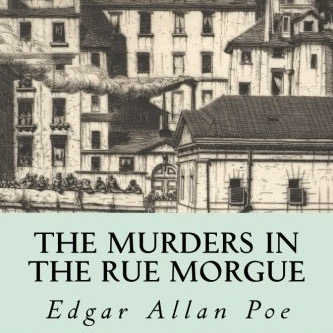
Read the Crime Novel Red Harvest and Tell Us What You Think
Dashiell Hammett’s crime novel Red Harvest is more than just a gripping detective story. It’s also a political statement, inspired
Tea, Tonic and Toxin is a book club and podcast for anyone who loves amazing mysteries and detective stories. First up: Edgar Allan Poe’s “The Murders in the Rue Morgue.”
“The Murders in the Rue Morgue” may be the first detective story. Set in Paris, the story features amateur detective Auguste Dupin and his unnamed sidekick, who narrates how Dupin solves a gruesome double murder.
Read: Buy it on Amazon, buy it used, or read it for free, courtesy of Project Gutenberg. (Reading time: ~4 hours)
Discuss: Check out the conversation starters below and our blog.
Weigh In: Share your thoughts using the form below!

At no extra cost to you, Tea, Tonic & Toxin will earn an affiliate commission if you buy your Tea, Tonic & Toxin books using the button below. Thank you for supporting our labor of love!


However, in “The Murders in the Rue Morgue,” Poe breaks new ground here — in mystery narratives, Poe essentially says, the usual rules don’t apply. The rifle doesn’t need to go off in chapter two, chapter three, or ever. Instead, the rifle, like the gold coins in the story, can be a red herring. Therein lies the challenge — for the detective and for the reader.

Dashiell Hammett’s crime novel Red Harvest is more than just a gripping detective story. It’s also a political statement, inspired

When Dorothy L. Sayers wrote Whose Body? (her debut novel, published in 1923), she introduced a detective who would go

If you’re a fan of Agatha Christie’s murder mysteries, I’m sure you’re already familiar with Hercule Poirot, the eccentric Belgian

This detective novel introduces readers to a British mining engineer – Richard Hannay – who has just returned to London

Even though the name of this book is Trent’s Last Case, the novel is actually about the FIRST detective case

Long before he started writing his own detective stories, Gilbert Keith (G.K.) Chesterton was already a fan of the genre.
Tea, Tonic, and Toxin is a book club and podcast for people who love mysteries, thrillers, introspection, and good conversation. Each month, your hosts, Sarah Harrison and Carolyn Daughters, will discuss a game-changing mystery or thriller from the 19th and 20th centuries. Together, we’ll see firsthand how the genre evolved.
Along the way, we’ll entertain ideas, prospects, theories, doubts, and grudges, along with the occasional guest. And we hope to entertain you, dear friend. We want you to experience the joys of reading some of the best mysteries and thrillers ever written.

Will you support our labor of love? To donate through Venmo, visit www.venmo.com and donate to @carolyn-daughters
Thank you. We couldn’t do it without you.
Enjoy our podcast? Consider sponsoring our show or making a donation toward audio and video tech, site expenses, and listener rewards. To learn more, email us at info@teatonicandtoxin.com. Thank you!
Want to debate our book selections? Hoping to be a guest on our show? Ready to become a sponsor?
We want to hear from YOU.
As a bonus, you might just get an on-air shout out and the world’s most awesome sticker!
© 2024 by Sarah Harrison and Carolyn Daughters